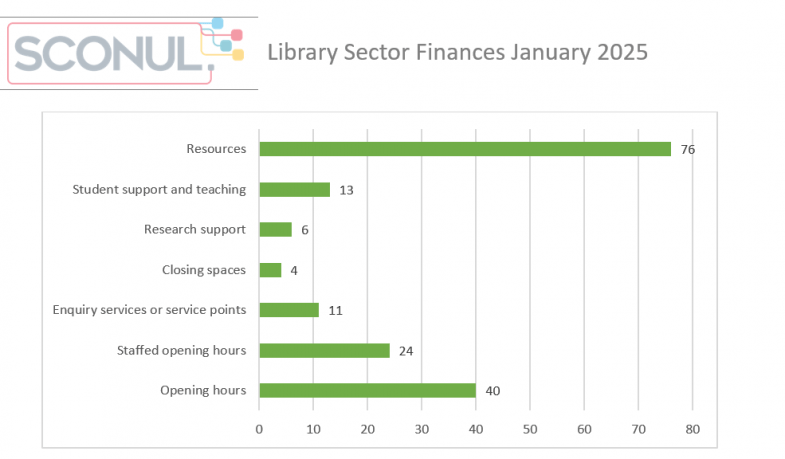Some UK university library budgets have been cut by as much as 30 per cent, with the library sector now spending an estimated £51 million less this academic year than in the previous 12 months, new analysis shows.
Drawing on survey responses from 104 university libraries, the Society of College, National and University Libraries (SCONUL) finds about three-quarters of libraries (73 per cent) are making cuts in their budget ranging from 1 per cent to 30 per cent, with an average mean cut of 8 per cent.
Across all libraries reporting on their finances in the survey, conducted in December and January, budgets have fallen by an average of 5.8 per cent – which, if replicated across the entire sector, would equate to a £51 million cut for 2024-25 compared to 2023-24.
Some 40 per cent of libraries have cut their opening hours, with some revisiting 24 hour access to libraries, while 24 per cent are scaling back staffed opening hours, the SCONUL report says.
Some 76 per cent have reduced their spending on journals and academic resources, it adds, reflecting the financial pressure that has seen some universities pull out of big deals with Elsevier at the start of the year.

Ann Rossiter, executive director of SCONUL, told Times Higher Education that the scale of the cuts meant frontline services were being affected as staff numbers were reduced.
“These cuts can’t be absorbed by further automation or efficiencies – they are having real impact on opening hours, staffed hours and access to content,” she said.
Asked if the cuts meant university libraries would end 24-7 opening, Rossiter said it was “not something libraries would wish to do”.
“But if something is to give, this might be something that gives – it is one of many unpalatable choices that university libraries are reluctantly making,” she added.
According to the survey, more than half of libraries (56 per cent) are actively restructuring, considering a restructure or have recently completed one. Some 21 per cent are already being asked to make cuts in the next academic year, the survey finds, with a further 66 per cent uncertain as to whether further cuts will be required next year.
However, this followed a decade or so of significant change in libraries where staff numbers have already been reduced, automation introduced and services expanded, explained Rossiter. “There is very little fat to cut anywhere,” she said.
The financial figures also underlined why upcoming negotiations between UK universities and the big five academic publishers needed to deliver significant savings for institutions, said Rossiter.
“There needs to be a sea change moment – the previous big deals have delivered some benefits in terms of access but they are not sustainable. We need a fundamental shift in what’s being offered,” she said.
Less than half of SCONUL members said they were confident of retaining their big deal subscriptions, the survey finds, with almost all libraries planning significant cuts in their spend on academic resources.
“Any expectations that publishers might have about fiddling around the margins of a deal, or maintaining certain profit levels, are misguided,” Rossiter said.
Register to continue
Why register?
- Registration is free and only takes a moment
- Once registered, you can read 3 articles a month
- Sign up for our newsletter
Subscribe
Or subscribe for unlimited access to:
- Unlimited access to news, views, insights & reviews
- Digital editions
- Digital access to THE’s university and college rankings analysis
Already registered or a current subscriber?










